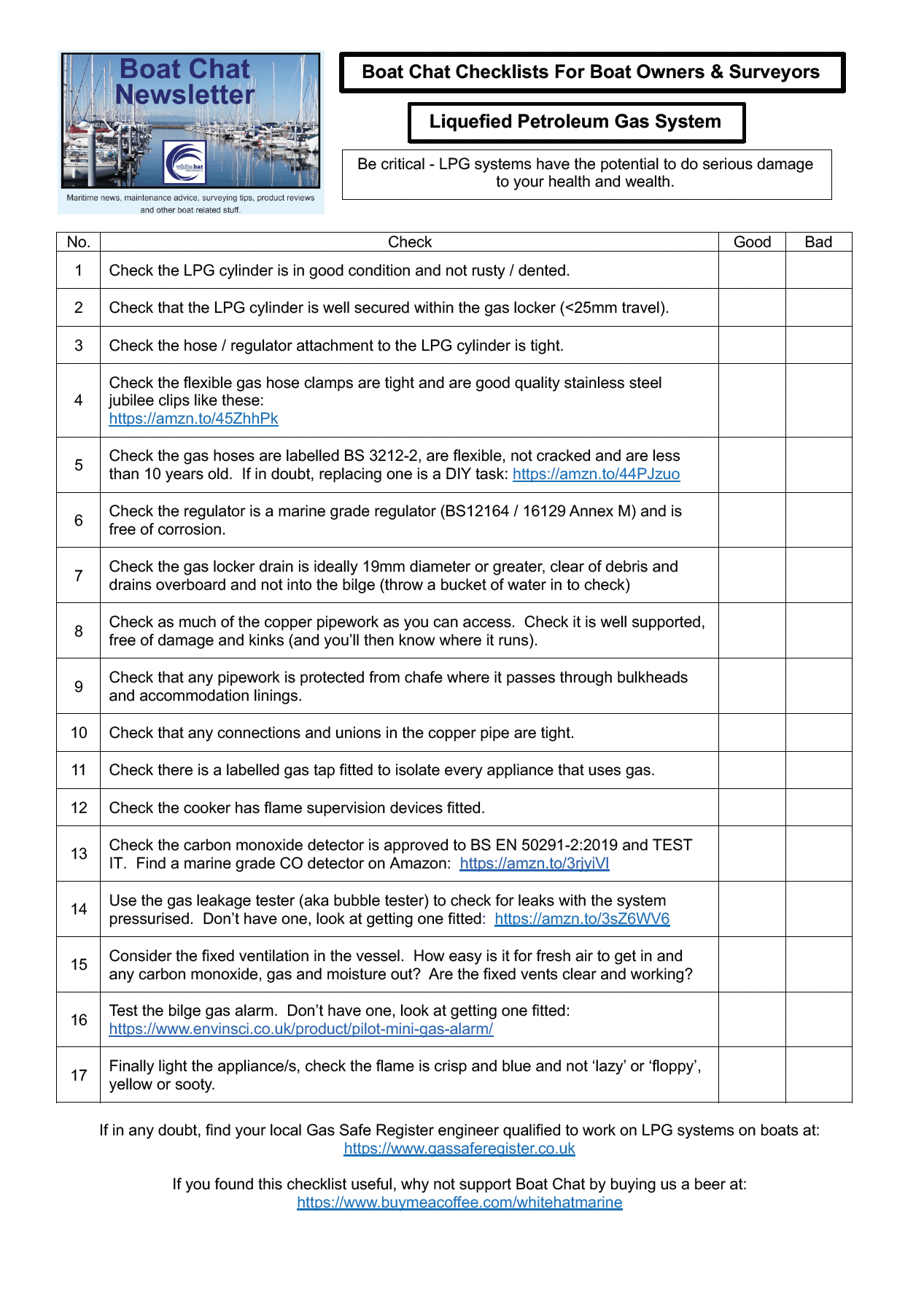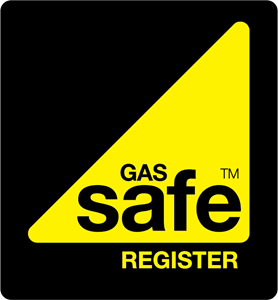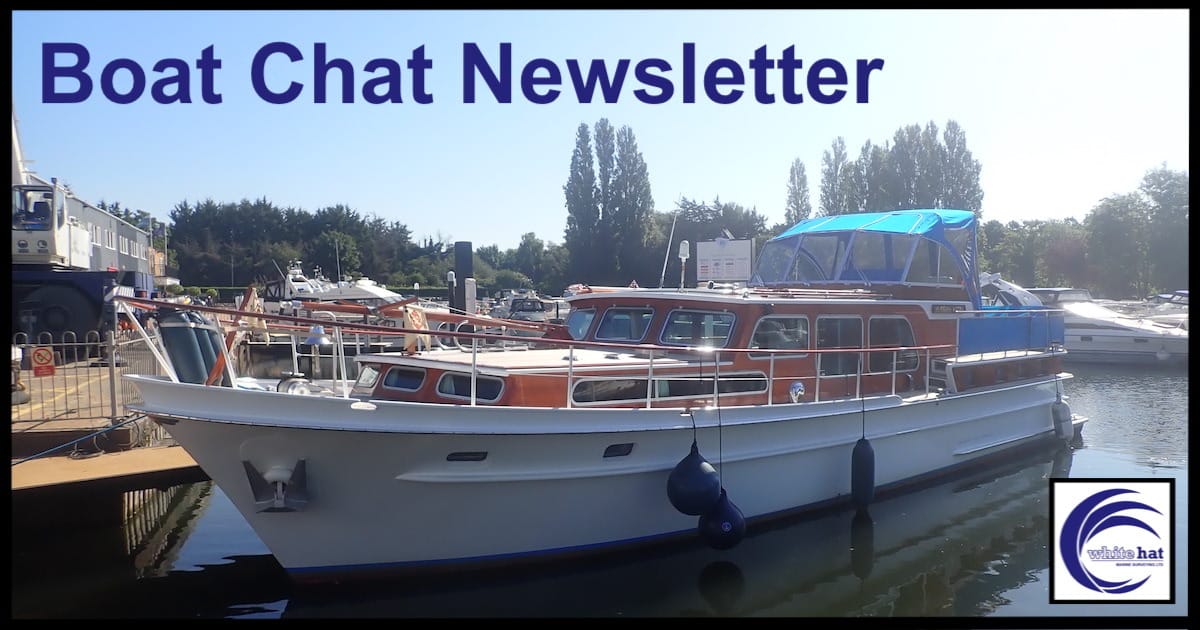
Maritime news, maintenance advice, surveying tips, product reviews and other boat related stuff.
Gas Safety Week 2023
This week has been Gas Safety Week in the UK. This is a nationwide initiative by the Gas Safe Register now in its 13th year. It aims to raise awareness of the dangers of gas systems and the necessity to keep them properly maintained and have them regularly tested. Every year people die due to poorly installed and unserviced gas systems.
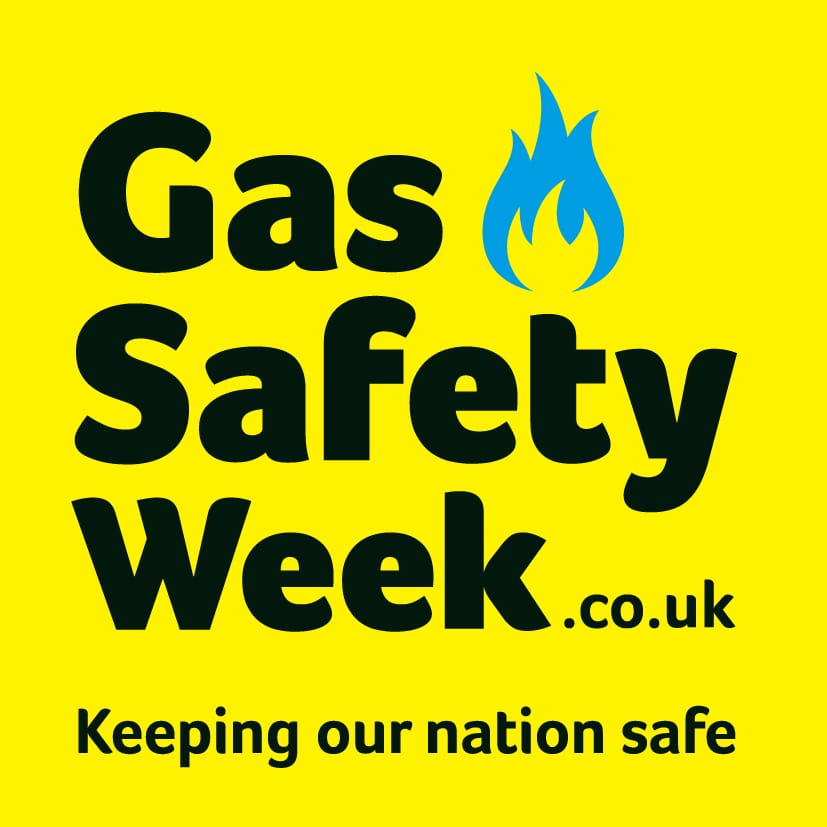
Boats which use LPG (Liquefied Petroleum Gas) have several additional requirements to domestic settings to make their systems safe and reliable. Gas Safe Engineers also have to complete additional training to be qualified to work on LPG cylinder systems.
As a marine surveyor I get to see lots of LPG systems on boats and they range from the well installed and safe to the shoddy and dangerous. Employing a suitably qualified Gas Safe Engineer to inspect and test the LPG system on your boat is time and money well spent and is something I regularly advise to my Clients.
As Owners of inland waterways craft in the UK will already know, regular inspections of the LPG system are a mandatory requirement to having a Canal & Rivers Trust licence to use the canal network. Unbelievably there is still no mandatory requirement for privately owned vessels on the coast to have safe LPG systems or to have them checked in any way.
LPG is one of the most dangerous fuels to store on a boat and its by-product of combustion, carbon monoxide, is an equally effective killer.
Do As Doug Says - “Don’t cut corners with gas”

Boat Maintenance Tips
A safe gas installation is most often a simple gas installation with several built in safety features. The best way to assess any gas system is to follow the LPG pathway from cylinder to appliance. Here are some simple gas safety checks you should carry out on a monthly basis (they are also a useful check list for the non-Gas Safe Register surveyor):
Check the LPG cylinder is in good condition and not rusty / dented.
Check that the cylinder is well secured within the gas locker.
Check the hose / regulator attachment to the cylinder is tight.
Check the flexible gas hose clamps are tight and are good quality stainless steel jubilee clips like these: https://amzn.to/45ZhhPk
Check the gas hoses are labelled BS 3212-2, are flexible, not cracked and are less than 10 years old. If in doubt, replacing one is a DIY task: https://amzn.to/44PJzuo
Check the regulator is a marine grade regulator (BS12164 / 16129 Annex M) and is free of corrosion.
Check the gas locker drain is ideally 19mm diameter or greater, clear of debris and drains overboard and not into the bilge (throw a bucket of water in to check).
Check as much of the copper pipework as you can access for security, damage and any kinks.
Check the pipework is protected from chafe where it passes through bulkheads and accommodation linings.
Check that any copper pipe connections and unions are tight.
Check there is a labelled gas tap fitted to isolate every appliance that uses gas.
Check the cooker has flame management devices fitted.
Check the carbon monoxide detector is approved to BS EN 50291-2:2019 and TEST IT. Find a marine grade CO detector on Amazon: https://amzn.to/3rjyiVl
Use the gas leakage tester (aka bubble tester) to check for leaks with the system pressurised. Don’t have one, look at getting one fitted: https://amzn.to/3sZ6WV6
Consider the fixed ventilation in the vessel. How easy is it for fresh air to get in and any carbon monoxide, gas and moisture out? Are the fixed vents clear and working?
Test the bilge gas alarm. Don’t have one, look at getting one fitted: https://www.envinsci.co.uk/product/pilot-mini-gas-alarm/
Finally light the appliance/s, check the flame is crisp and blue and not ‘lazy’ or ‘floppy’, yellow or sooty.
You can download this checklist for free at:

As a marine surveyor there are several safety elements of a gas system that I look for during a survey. The presence of these can greatly increase my confidence in the LPG system. Here are my top five:
1: BS EN 16129-M LPG Regulator
Most applicable to saltwater vessels due to increased corrosion rates and in particular on yachts due to heeling. These regulators have better internal components which resist corrosion and a 75mBar over-pressure relief valve which prevents high pressure liquid entering the low pressure side of the system when the vessel heels. Made to the BS EN 12864-M:2001 or BS EN 16129-M:2013. Not colour coded and suitable for both propane and butane cylinders.
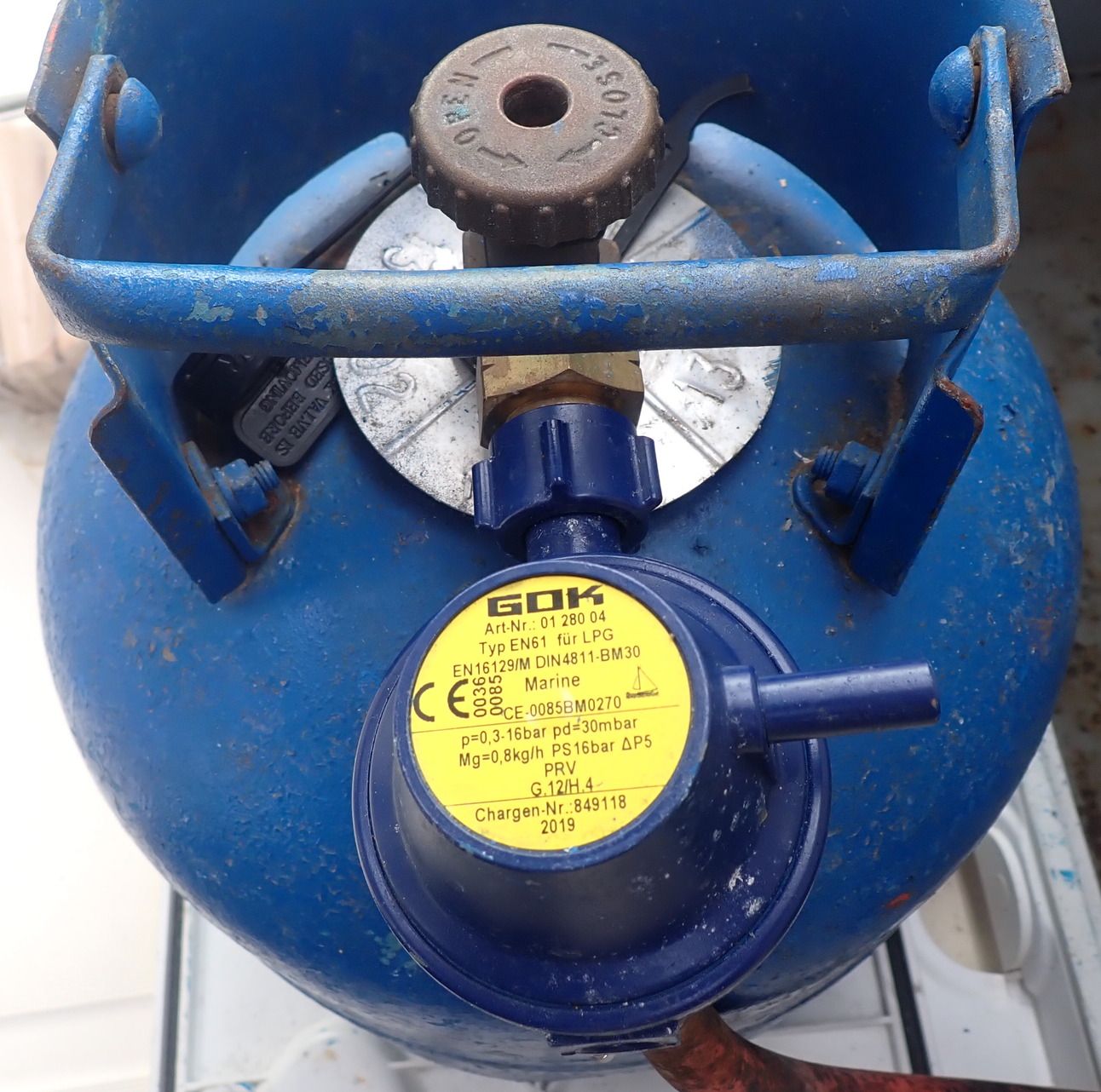
A BS 16129-Annex M:2013 LPG Regulator
2: BS3212-2 Flexible Gas Hoses
Along with the clips to secure them, the flexible gas hose is the cheapest item in the gas system and the one that usually lasts the shortest period of time! Depending on their location and storage conditions they can often become unserviceable in as little as 5 years. Quality hose is made to BS 3212-2 (suitable for high pressure application) and should be date stamped. Make sure you are not supplied welding gas hose made to BS 3821.
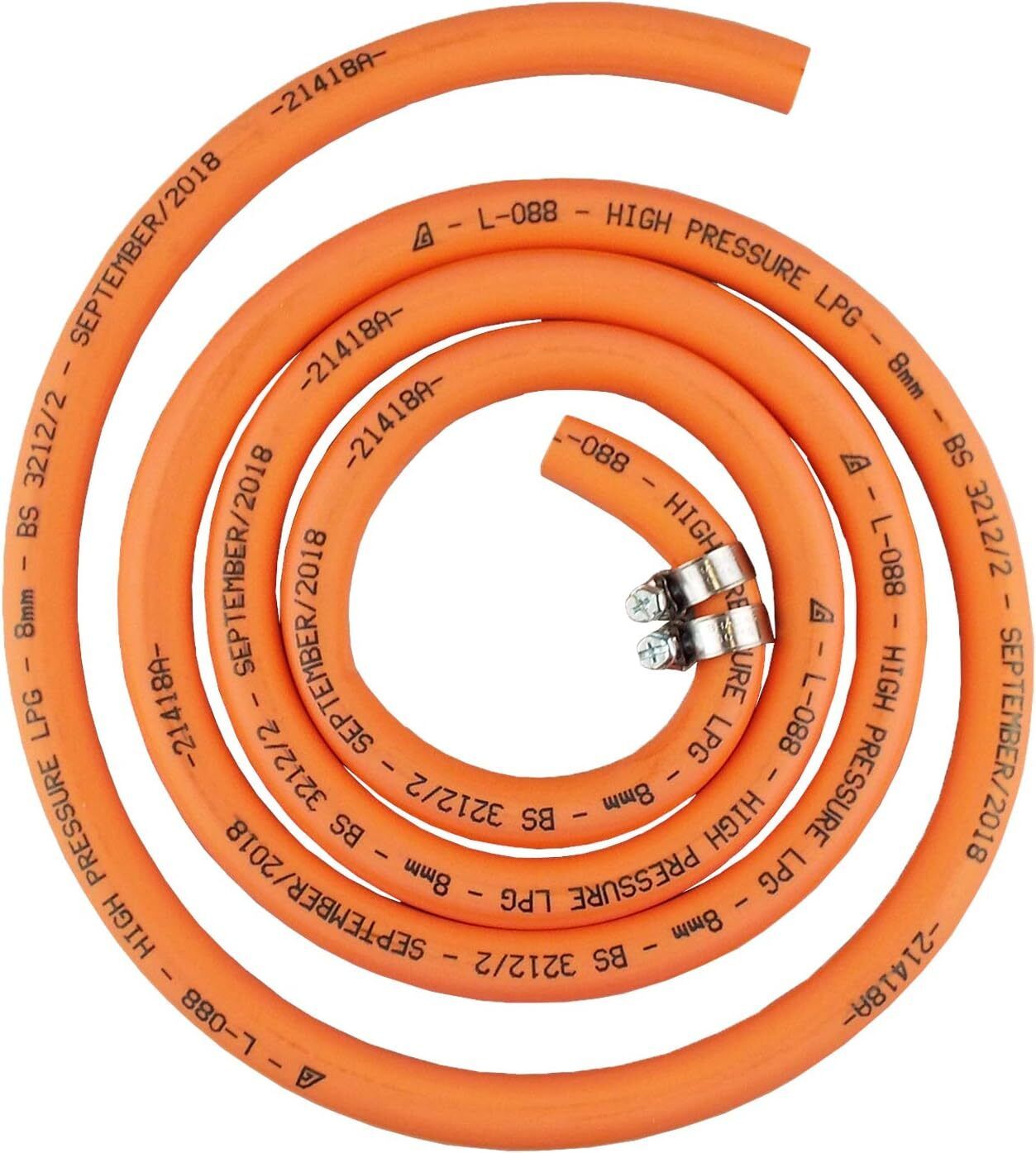
BS 3212-2 8mm LPG Hose - https://amzn.to/45E70ID
3: Gas Leakage Tester
The ability to test for gas leaks in the LPG installation every time you use it is a most useful feature and can be enabled by fitting a gas leakage tester, also known as a ‘bubble tester’. The Alde gas leak detector is a tried and tested system, best fitted alongside the gas cylinder. With the gas system pressurised and all appliance stop cocks open but appliances not turned on, pressing the large red button tests the system for leaks. If any are present, bubbles will be seen in the liquid filled inspection glass; simple yet effective every time you turn on the gas.
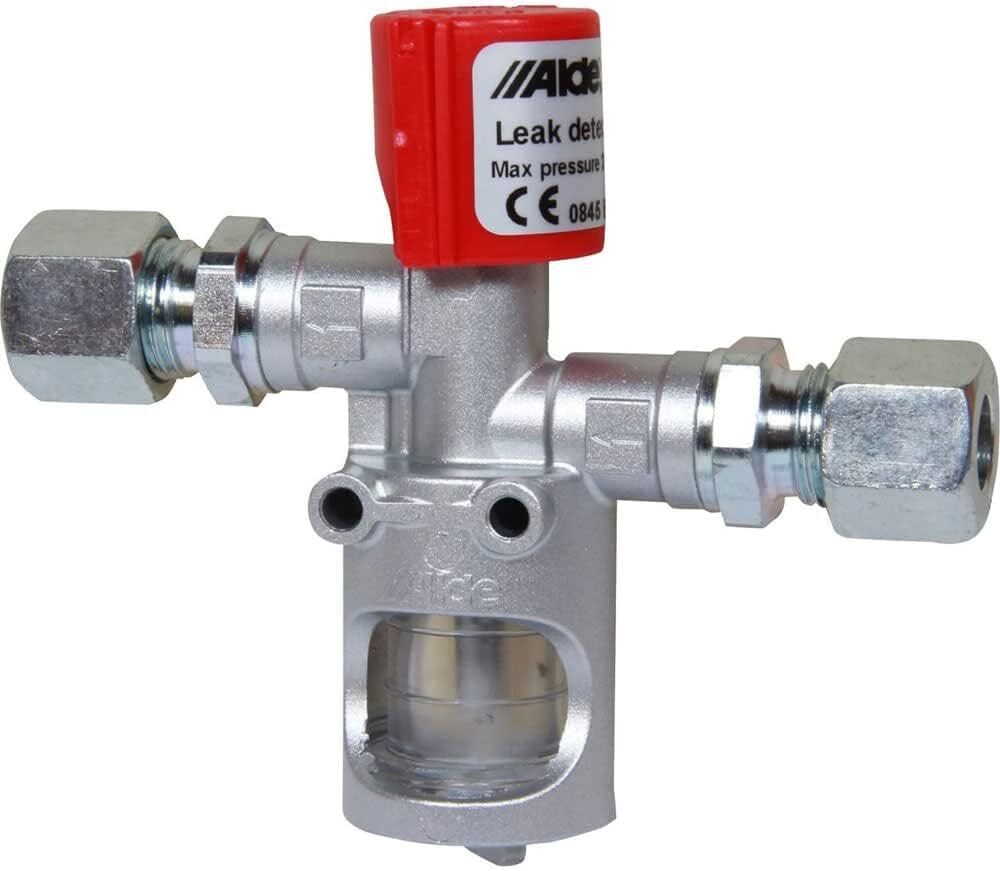
Alde Gas Leak Detector - https://amzn.to/3Qrypsu
4: Gas Test Point
A very simple element of the fixed gas pipework which allows for pressure testing with a manometer by a Gas Safe Register engineer. Usually fitted behind the cooker or other appliance.
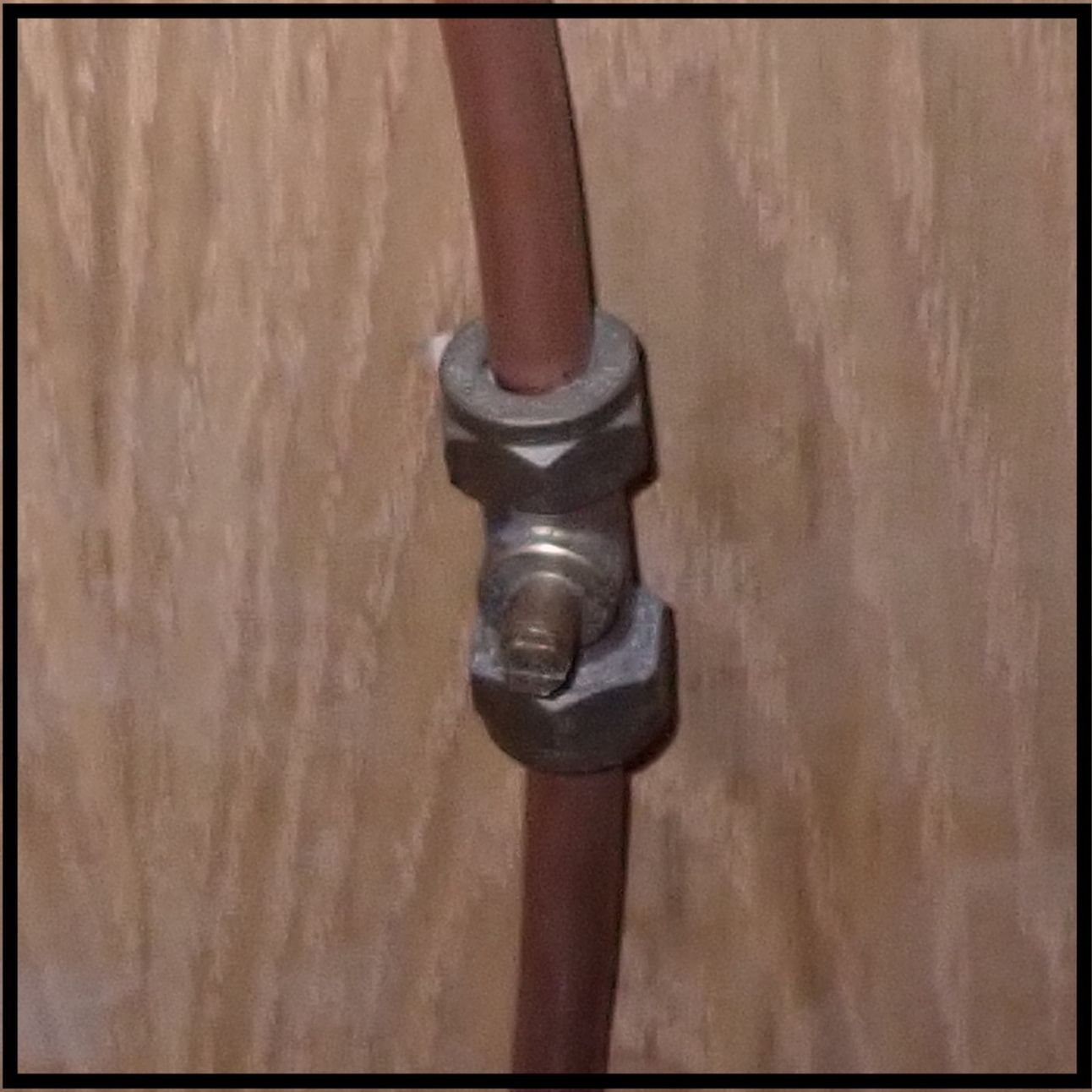
5: Approved CO detectors
Carbon monoxide detectors are relatively low cost, long lasting safety critical items that really should be fitted on any vessel with an enclosed cockpit or cabin. The UK standard for CO detectors is BS EN 50291-2:2019, this standard is higher than the domestic standard 50291-1. Most modern CO detectors come fitted with sealed batteries with a 5-10 year lifespan and can either be standalone units for smaller vessels:
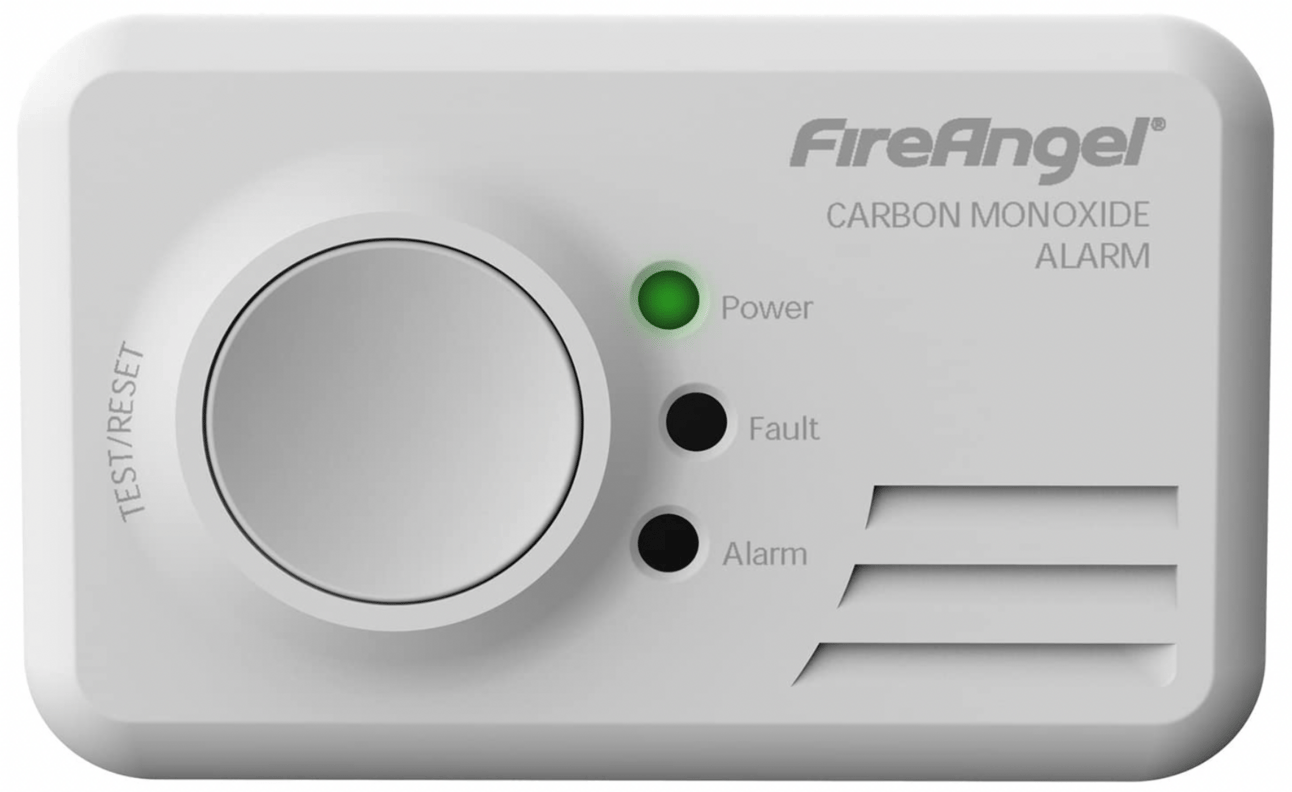
FireAngel CO-9X-10T-FF - https://amzn.to/3rjyiVl
For larger vessels with multiple cabins, wi-fi linked detector units may be more appropriate:
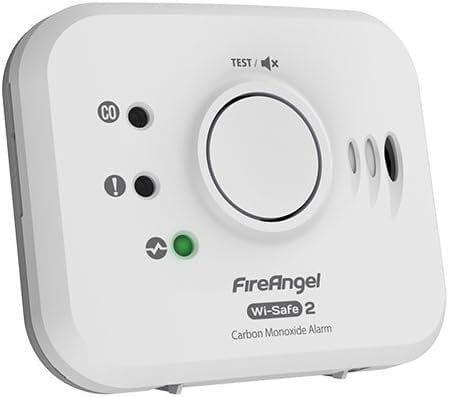
FireAngel W2-CO-10XT - https://amzn.to/46BO3qH
More Great Kit Ideas
For more great kit ideas for your boat, bookshelf or surveyor’s toolbox have a look at our page on Kit.Co

Big thanks to previous survey client and all round top bloke Dean Frost for supporting Boat Chat this month. Dean writes: “I've had three boats surveyed by White Hat, and all have been exactly as the survey said! Great work David. Thank you!” Fabulous feedback and great to hear as Dean rowed across the Atlantic in one of them!
Dean is the Managing Director of Clade Engineering, the UK’s leading manufacturer of natural refrigerant heat pumps.

How To Support Boat Chat
Boat Chat’s mission is to ‘Help People Understand Boats Better’ by looking at what is going on in the world of boating. Helping people make sense of current maritime events, offering suggestions on how to make the best / minimise the worst boating outcomes and reviewing books and products of interest to boaters.
The easiest way to support Boat Chat is by buying us a beer at:
N.B. Links to products in this newsletter are typically Amazon Affiliate Links which may earn Boat Chat a small commission should you buy them using the link (this does not affect the cost you pay).mplate”

